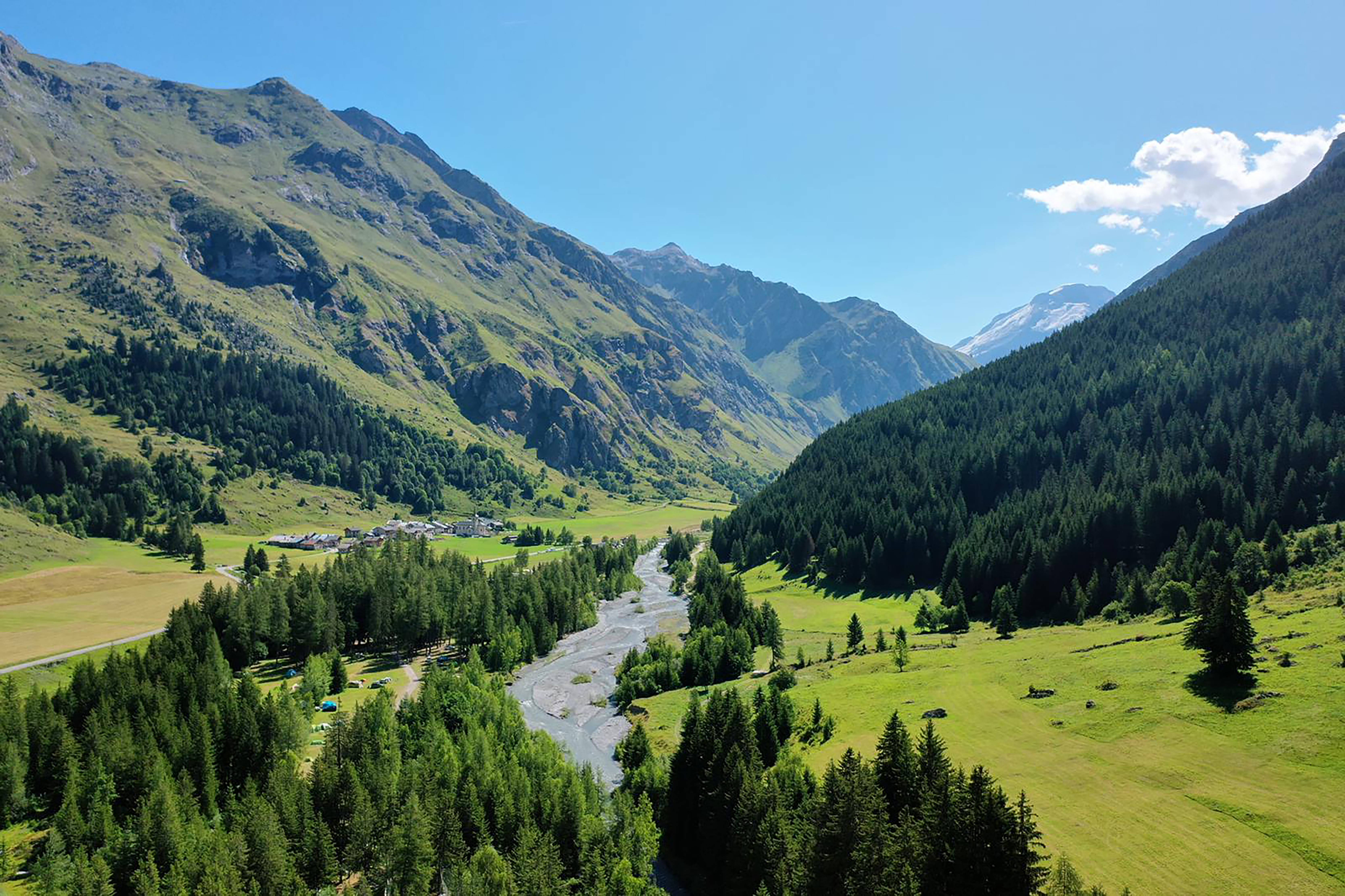
The listed Valley of Champagny le Haut’s 4 hamlets
Description
Follow the green waymarks: Les 4 Hameaux.
E-bike rental shop:
Belvédère Sport 2000
Le Crey
73350 CHAMPAGNY EN VANOISE
+33 (0)4 79 55 05 45
- Departure : The Couaz Dam Hamlet of La Couaz 73350 Champagny-en-Vanoise
- Arrival : The Couaz Dam Hamlet of La Couaz 73350 Champagny-en-Vanoise
- Towns crossed : CHAMPAGNY-EN-VANOISE
Forecast
Altimetric profile
Recommandations
If in doubt, you can take an introductory lesson in how to ride an electric bike with an instructor.
The route is popular with hikers and mountain bikers . Please stay on the trail.
The mountain is living, please respect it by staying on the paths and tracks.Information desks
Tourist Information Office - Champagny en Vanoise
Le Centre, 73350 Champagny-en-Vanoise
Transport
You can then get a coach to Champagny en Vanoise.
Find out more at: www.transavoie.com
Have you also thought about car sharing?
Access and parking
Parking :
Accessibility
- Emergency number :
- 114
10 points of interest
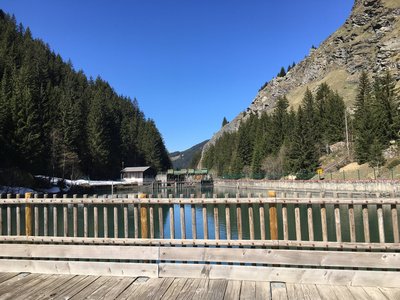
Exposition photo du chemin de l'eau en Savoie - OTGP  Water
WaterWater’s journey in Savoie
Photo Exhibition: “Derrière la retenue, les chemins de l’eau en Savoie” (Behind the reservoir, the roads of water in Savoie). In 2015-2016, at the request of the FACIM Foundation, visual artist Sylvie Bonnot created a photo essay in Savoie’s high valleys (Maurienne, Tarentaise, Beaufortain and Val d'Arly). The artist spent a year following water’s journey from season to season, producing an impressive set of images that show how dams, pipes and hydropower plants integrate with other ways in which the mountains are put to use. The fruit of her work is presented in a series of 24 large-format photographs (2 metres x 2 metres) exhibited in the open air and forming an itinerary leading to fresh discoveries in the heart of Beaufortain and Val d'Arly, around hydroelectric sites, in villages, and alongside the Arly and Doron rivers. You’ll also be able to stop off for a bite to eat at the “Le Canada” Restaurant.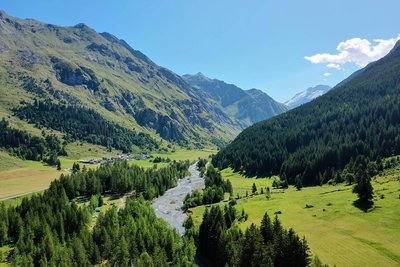
Le vallon de Champagny Le Haut - OTGP  Glacier
GlacierChampagny le Haut Valley
A magnificent glacier valley 1,500 metres above sea level, Champagny le Haut Valley was listed as a National Heritage Site in 1992.
Through determined and patient human endeavour, nature has been organised to ensure the mountain dwellers' survival, with every possibility provided by a hostile environment turned to their advantage. The hamlets are all located on the right bank of the stream, to the south in order to make best use of the sunlight, close to the few areas of arable land and the grassland necessary to stockbreeding, near the woods that provide fuel for heating, and on sites chosen in order to keep their inhabitants safe from avalanches, rock falls and landslides. All of them at the feet of some of the highest ice-capped peaks in the Vanoise, close to 4000 metres above sea level, including the Grande Casse and the Grande Motte.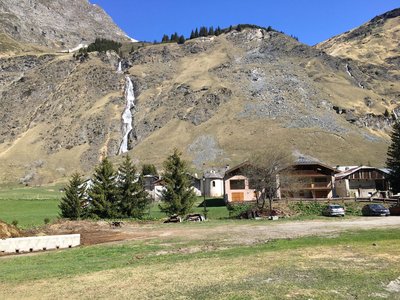
Le hameau de la Chiserette - OTGP  History
HistoryHamlet of La Chiserette
In this hamlet, set in the shadow of an impressive waterfall and home to the little Chapel of the Holy Trinity, there’s a street called “Rue des Cocottes” as it was often overrun by hens and also pays tribute to Gaston and his mare Cocotte.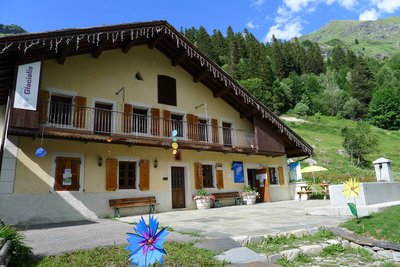
L'espace Glacialis - OTGP  Glacier
GlacierEspace Glacialis
Come and acquaint yourself with the ice giants! In this era of global warming and untimely melting of the planet’s ice, it's all the more important to (re)discover glaciers and wonder at their incredible beauty and multiple attributes. In this light-hearted, educational museographic facility with 200 m² of exhibition space, the subject of glaciers is tackled from all angles: scientific, geological, historical, mythological, environmental, landscape and human. There’s a range of activities to enjoy, including guided visits, exhibitions, scavenger hunts and presentations.
Information:
https://espaceglacialis.fr
04 79 01 40 28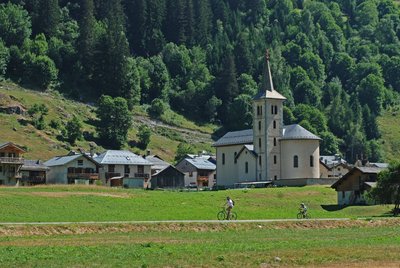
Le hameau du Bois et l'église Saint Clair - JM G  Architecture
ArchitectureHamlet of Le Bois and Saint-Clair Church
The last little hamlet accessible by car in winter and Champagny le Haut Valley’s main village, Le Bois boasts an outstanding natural setting. Its houses are perfect examples of traditional architecture, with their stone slate roofs, balconies with wooden balusters and cantilever barns…
You’ll also find much to appreciate at Le Bois’ mountain hut, with its stretch of tree-shaded lawn, children’s games and excellent restaurant, along with Espace Glacialis, which is dedicated to the discovery of mountain glaciers, and finally, Saint-Clair Church, built thanks to donations from the parish’s inhabitants.
Each hamlet has its own chapel, but the biggest has a full-fledged church.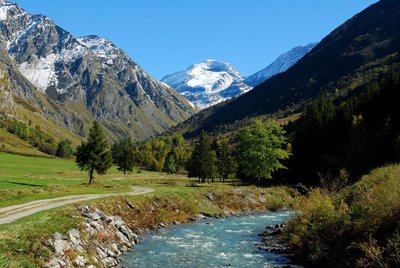
Le Doron de Champagny - M Gouedard  Water
WaterDoron de Champagny
The Doron is formed by the meeting of several watercourses that find their sources in various mountain glaciers. It abounds in fario and brook trout to the general delight of anglers. The stream makes its way between the rocks, watering milieus where fauna and flora can flourish. Water is essential to life: a benefactor that can also be a destroyer.
Over the course of time, the Doron de Champagny has suffered avalanches, landslides and storms, and its tributaries have overflowed, their waters destroying crops and houses alike. As far back as the Middle Ages, mountain dwellers used water’s mechanical power to operate their flourmills and sawmills, but it was not until the 19th century that humankind learned how to use water as a source of energy, with hydroelectricity, dams and so on. Even today, during strong storms, the inhabitants can see the Doron rise from its bed!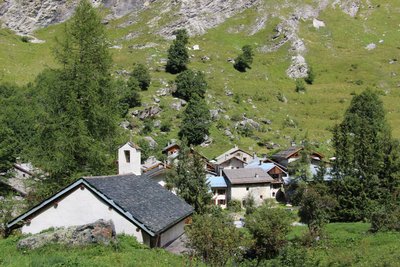
Le hameau de Friburge - OTGP  History
HistoryHamlet of Friburge
Don’t miss out on a visit to the craft workshop run by Hélène and Patrick Milliat, wood carvers and the hamlet’s last year-round inhabitants.
This picturesque hamlet used to be inhabited all year round and contains fine examples of the traditional rural architecture of bygone days. It's located between two avalanche corridors, beneath a rocky outcrop and protected by a “tourne” (deflecting structure), and the mountain dwellers’ resourcefulness has ensured the hamlet’s survival in its natural environment, respecting the setting and making use of all its attributes.
The pretty little chapel of Notre-Dame-des-Grâces provides a panoramic view over the entire hamlet.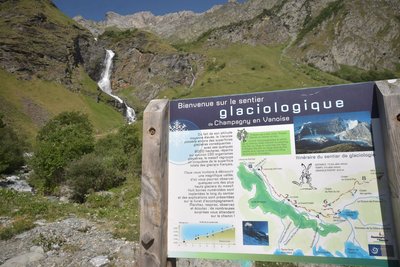
Le sentier glaciologique - Gouedard  Glacier
GlacierGlacier Trail
Take in the valley’s true magnificence from the Palet Pass, which provides you with views of some of the massif’s highest glaciers, with eight numbered marker posts located along the trail by the Vanoise National Park.
The itinerary, which takes around 4 hours to complete, was created and waymarked by the Vanoise National Park. The accompanying booklet contains all the information you might need as you get better acquainted with mountain glaciers.
On the itinerary: the Glière mountain hut (restaurant service and beds for the night), the high mountain pastures of the Plan du Sel and the secrets of Beaufort cheese production, and above all, no end of marmots!
You can get a copy of the booklet at the Laisonnay Reception and Information Point.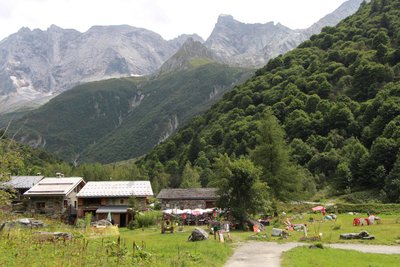
Hameau du Laisonnay - OTGP  History
HistoryHamlet of Laisonnay
Laisonnay is the oldest and most remote hamlet. It was here that the first inhabitants (of Haute-Tarentaise) settled, after crossing the Palet Pass into the valley. It contains a dozen or so stone buildings with traditional stone slate and wooden shingle roofs and a renovated with smattering of more recent materials. Houses are grouped together in order to make use of the few locations not exposed to natural risks (avalanches, rock falls and flooding by the Doron). Notre Dame des Neiges Chapel downstream of the hamlet and the old oven upstream are both well worth a visit.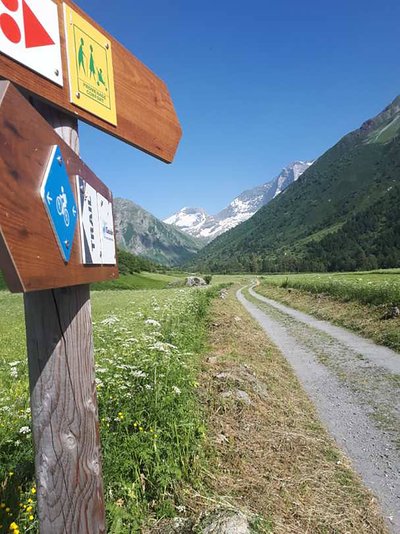
La promenade des Gorzdérés - OTGP  Glacier
GlacierTrail of Gorzdérés
A trail with its full share of interpretive signage including anecdotes and games, enabling young and old alike to uncover the secrets of this unique valley and its characteristic flora, fauna and pastoral life.
The trail is labelled “Promenade confort” (Comfort Walk) and is also suitable for people of reduced mobility and pushchairs, due to its very gentle slope and the picnic tables provided along the way, where you can take a well-earned relaxing break.
Excursion time: 1½ hours (loop trail)
Difference in elevation: 30 metres
